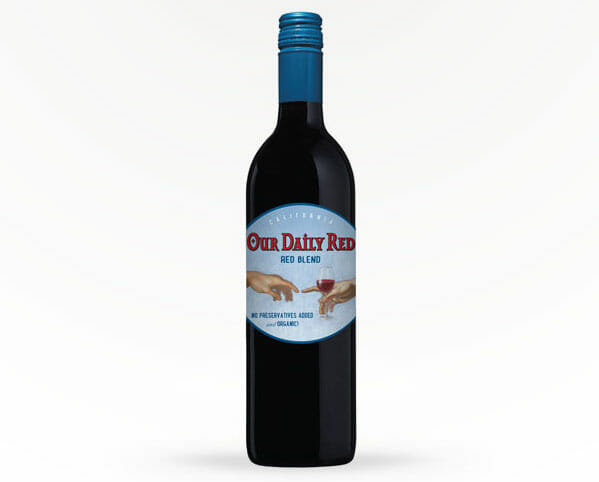Natural wines are a hot topic right now in the wine world. While they seem to be the trendiest new thing, they actually have a very long history in the world of wine. But is the definition of natural wine? How are they made, and how do they differ from regular wine?
What is natural wine?
Natural wines are made from unadulterated fermented grape juice and no other additives in their purest form. Sounds simple enough, right? Well, the topic of natural wines is subject to heated debate within the winemaking and wine-drinking communities. Some sommeliers feel that the definition of natural wines should be broader, as many wines have “additives” that are organic and found in nature. Some natural wine lovers are very strict with their definitions of natural wines and will only consume wines with absolutely no ingredients other than grapes.
Natural wines don’t have a strict set of characteristics or standards to follow. They can be red, white, or rosés, sweet or dry. While natural wines seem like a new concept driven by our modern obsession with healthy, unprocessed foods, the concept of making wine without preservatives or additives is as old as wine itself. Ancient civilizations made their wines without anything added for thousands of years. Evidence suggests that wine was being made as far back as 6,000 years ago, far before any sort of artificial preservatives were invented.
Natural wines are produced slightly differently from regular wines. The winemaking process usually involves growing and picking grapes, then turning those grapes into wine via fermentation. Natural wine is made from grapes not sprayed or treated with any pesticides or herbicides, and natural winemakers harvest their grapes by hand. When it comes to fermentation, only native yeast is used.
Many people don’t know this, but there are yeast particles that exist naturally in the air all the time. This is what is referred to as native yeast. Natural winemakers leave their grapes in a vat until native yeast lands on them and begin the natural fermentation process. Natural winemakers also don’t use any additives, such as sugar, acid, or egg white.
Some natural winemakers will use sulfites in their wine. Sulfites are a food preservative that has been used in winemaking throughout history, as they allow the wine to maintain its freshness and flavor. While sulfites are technically an additive, they help ensure that the wine stays fresh and tastes the same when it gets to you as it did going into the bottle. Natural winemakers use very small quantities of sulfites compared to traditional winemakers, who often use up to ten times as much. The purest natural wines will have no sulfites added and are often called “zero-zero” wines because they contain zero sulfites. The presence of sulfites doesn’t disqualify a bottle of wine from the natural wine category. Small amounts of sulfites, usually around 10 to 35 parts per million, are considered acceptable.
There’s a variety of misconceptions many people have when it comes to natural wines. Many people think they’re cloudy and funky, with offputting tastes or smells. Natural wine is often unfiltered, leading to cloudiness, and certain natural wines can taste funky. But there are so many amazing natural wines out there that taste quite similar to “regular” wine.
The natural wine debate
Natural wine is often defined by what it isn’t rather than what it is. Natural wines are the opposite of “conventional wines,” which are wines that utilize technology during their production process and have preservatives and additives in them to make them taste better or last longer.
Conventional wines use lab-grown yeast to control fermentation and regulate flavor, acid to increase the wine’s acidity and help it age better, and large amounts of sulfites at the time of bottling for flavor preservation. Many conventional winemakers also add sugar to their wines, so the yeast can consume it during fermentation, boosting the alcohol content.
Conventional wines are a newer development, and the process of conventional winemaking as we know it has really only existed for the last 70 to 100 years. Pesticides became widespread around World War II, and commercial yeast came on the scene in the mid-1960s. Wine criticism, which popped up in the mid to late 20th century, also played a big role. Wine producers wanted to impress critics and often relied on preservatives and additives to make their wines “better.”
Proponents of natural wines are often strict opponents of conventional wines. Natural wine fans claim that the additives and sugars in conventional wines dull the flavors and aromas. They believe that the best wines are made with very minimal intervention. However, many conventional winemakers argue that they have greater control over the flavors and aromas in their wines, allowing them to produce a better-tasting, more consistent product. The subject of natural wines has long been a heated debate in the winemaking community, and the debate isn’t likely to die down any time soon.
The natural wine movement
As we know, natural wines have existed for as long as wine has existed, but since all wines were natural, it wasn’t considered anything special. The natural wine movement didn’t really occur until conventional winemaking methods became prevalent. Most people agree that the modern natural wine movement began in rural France, where farmers making natural wines found each other and formed a community. These winemakers were on isolated farms, working organically with their vines and using few to no additives to ferment.
One of the first organized natural wine tastings took place in Saumur, France, in 1999. It was called La Dive Bouteille and was composed of about 15 winemakers and 100 attendees. Today, this yearly event still happens, and hundreds of winemakers participate, serving wine to thousands of attendees.
In the early 2000s, natural wines began to be imported to the United States and slowly began gaining popularity. The first natural wines came from France, but other countries quickly followed suit and got in on the trend. Today, there is a huge community of natural wine lovers from all over the world. There are so many incredible natural wines on the market in a huge variety of different styles.
Best natural wines to try
There are so many incredible natural wines to try that it’s difficult to know where to start. We’ve compiled a list of some of our favorite natural wines on the market today to help give you a jumping-off point if you’re new to the natural wine world.
Our Daily Red Organic Red Wine
Our Daily Red Organic Red Wine is a light, fruit-forward red blend featuring ripe notes of fresh raspberry and juicy cherry, accentuated by a subtle aroma of violets. It’s made with a blend of Syrah, Grenache, Ruby Cabernet, Carignan grapes and is organic, vegan, sulfate-free, and gluten-free. This wine is incredibly vibrant, with an elegant finish.
Pacific Rim Organic Riesling
The Pacific Rim Organic Riesling is an incredibly fine, medium-sweet Riesling. The bouquet offers notes of jasmine and citrus, and the palate is incredibly balanced, with notes of citrus and green tea. The winery uses no pesticides when growing their grapes, and every element within their sustainably farmed vineyard is native to the land.
Good Clean Rosé
Just as the name suggests, Good Clean Rosé is an incredibly delicious, natural rosé wine. It’s clean, made with minimal intervention, and produced and grown sustainably in small batches. The rosé is juicy and fresh, with notes of wild strawberry, yellow peach, and green melon flavors. It’s a delicately dry wine, and it’s incredibly refreshing for the summertime.
German Gilabert Brut Nature Cava
German Gilabert Brut Nature Cava is a delicious, dry, organic wine with fine bubbles and citrus notes. Cava is Spain’s most popular sparkling wine. This wine is light-bodied, offers notes of citrus and lovely mineral notes. It’s an incredibly elegant wine with a lovely long finish.
The takeaway
Natural wines are a hot topic among wine lovers right now. Proponents of natural wines believe that producing wines without additives or preservatives brings out their natural flavors and aromas. Some people believe that natural wines are cloudy and funky-tasting, but this couldn’t be further from the truth. There are so many amazingly delicious natural wines out there that taste just like other conventionally produced wines.
We recommend delving deep into the world of natural wines and trying some of these amazing, chemical-free, organic bottles.
For all your wine delivery needs, you can count on Saucey. We offer speedy delivery and no order minimums on a huge variety of wines, beers, and spirits. Treat yourself to your favorite beverages tonight without having to get off the couch.




